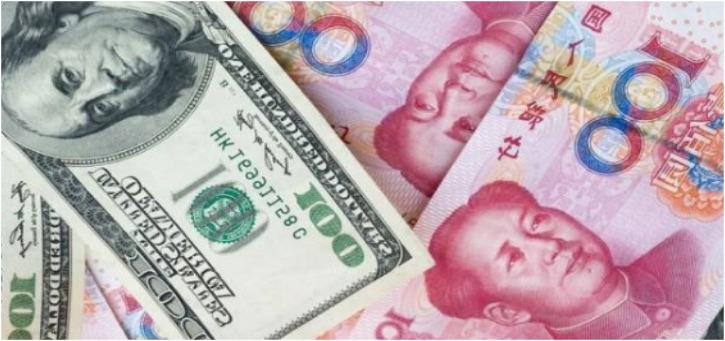
China’s major state-owned banks have reportedly been actively selling U.S. dollar to purchase yuan in both onshore and offshore spot foreign exchange markets this week. This action is aimed at slowing down the depreciation of the yuan. State banks often act under the guidance of the central bank during times of pressure on the yuan, such as the current situation.
The move to sell dollars by state banks has become a common strategy to curb the speed of yuan depreciation. Offshore branches of these banks have also engaged in dollar selling during London and New York trading hours.
This strategy of selling dollars serves to prevent significant divergence between the offshore and onshore yuan exchange rates. The yuan has experienced a decline of approximately 2.4% against the dollar this month and a total of 6% since the beginning of the year.
The recent acceleration in the yuan’s depreciation is attributed to the widening yield differential between China and the U.S. This trend, coupled with concerns over China’s economic growth and escalating default risks in its property and shadow banking sectors, has prompted increased investor apprehension.
Despite the People’s Bank of China (PBOC) implementing measures to ease monetary policy and support the economy, these actions have put additional pressure on the yuan due to lower interest rates. The widening yield differentials between China and the U.S. have also raised expectations of further policy easing by the PBOC, even if it contributes to yuan depreciation.
The Chinese authorities have displayed efforts to stem the yuan’s decline. The PBOC has consistently set stronger-than-expected fixings, while state banks have been actively involved in selling dollars. Similar tactics were observed in September 2022 when the PBOC directed major state-owned banks to prepare for dollar sales to support the yuan.
In July, the central bank made adjustments to allow companies to borrow more overseas, intending to bring in foreign currency to be converted onshore to bolster the yuan. However, higher interest rates on overseas loans have limited the impact of this policy tweak.
One successful tactic involves state banks lending fewer yuan in the offshore Hong Kong market. This approach has contributed to limiting the yuan’s decline this week. Despite a liquidity squeeze in Hong Kong, aggressive efforts to absorb yuan liquidity could negatively affect bond market sentiment.
